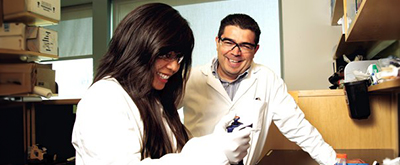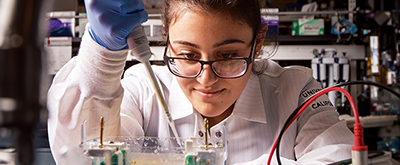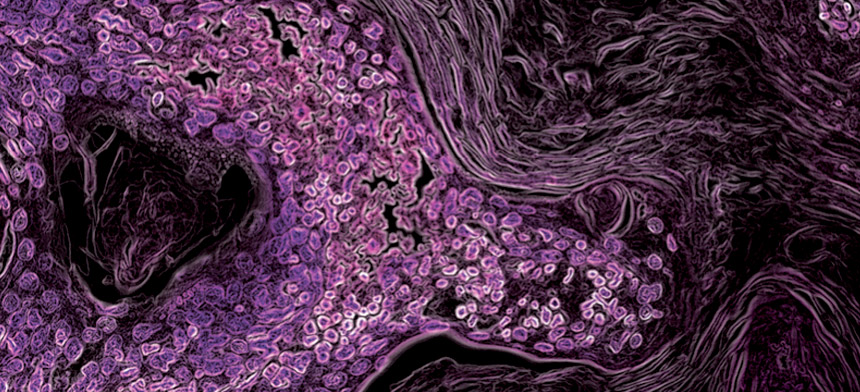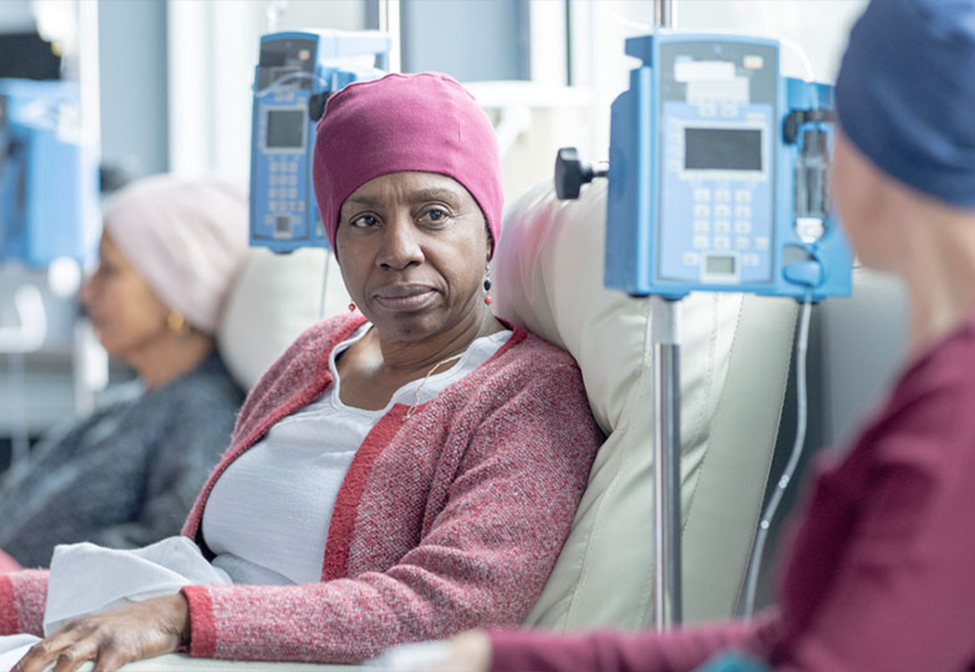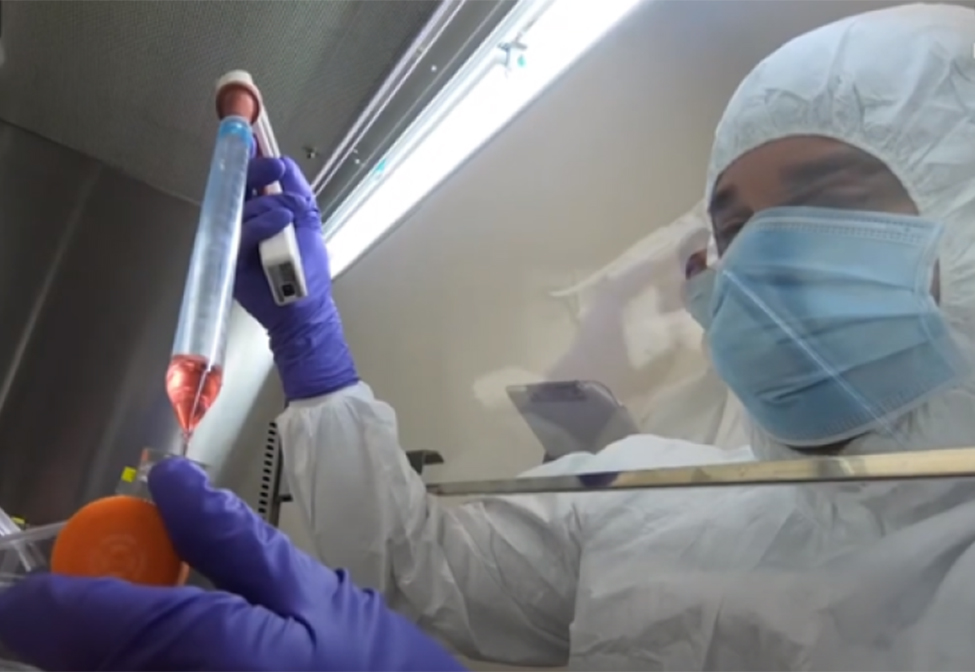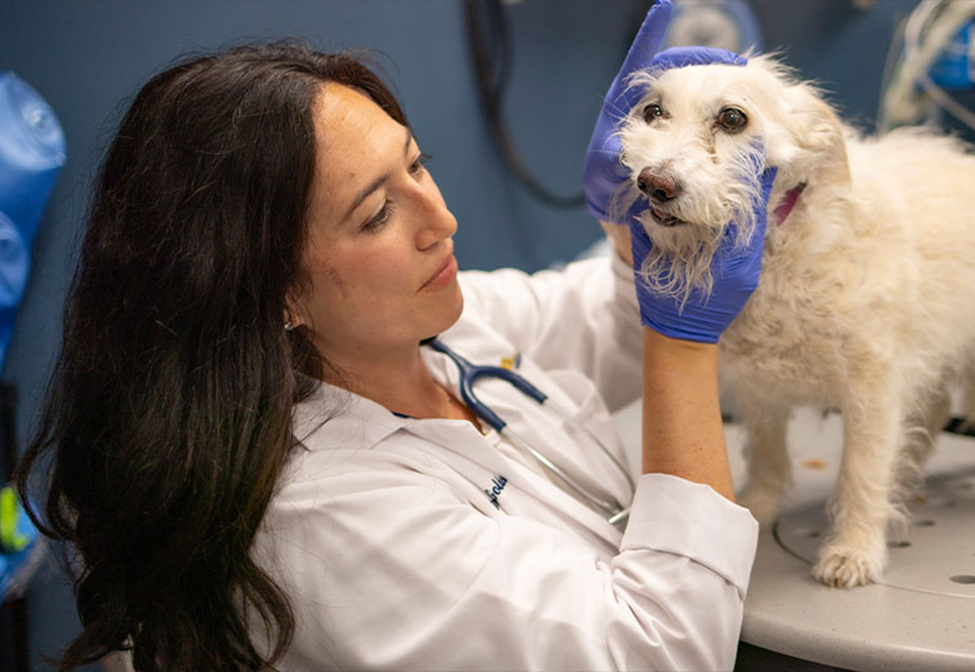Cancer research at UC Davis
UC Davis Comprehensive Cancer Center is a national leader in both basic and clinical research, emphasizing innovative approaches to cancer diagnosis, treatment, and addressing health disparities.
Our cancer center has unique collaborations with major scientific organizations such as the Lawrence Livermore National Laboratory and UC Davis departments and schools including the School of Veterinary Medicine. These partnerships have resulted in new techniques that improve cancer detection through imaging, better drug therapies and therapeutic strategies, and more effective approaches to treating and curing cancer.
Membership resources for researchers
Involved in cancer research? Cancer Center membership is open to all UC Davis faculty and Lawrence Livermore National Laboratory researchers with a focused interest in cancer or related disciplines, and a commitment to contributing to the Cancer Center mission. Collaborate with like-minded investigators, gain access to resources, and contribute to the only NCI-designated Cancer Center positioned to address the cancer burden in Northern California's Central Valley.
Become a part of the collaborative research community at the UC Davis Comprehensive Cancer Center. Learn more about becoming a member and the valuable resources available to our researchers.
Our Research Programs
Our Research Programs are made up of Cancer Center members (basic, clinical, public health scientists and engineers) who are experts in a variety of disciplines and an interest in tackling some of the most complex challenges in cancer prevention, diagnosis, and treatment.
Biomedical Technology
Engineers and clinical scientists applying innovative technologies to solve challenges in tumor detection and analysis, drug delivery and disease monitoring to improve cancer care and outcomes
Integrated Cancer Biology
Basic scientists working to unravel cancer’s molecular secrets to better understand, diagnose and treat cancers
Cancer Therapeutics
Clinical and basic scientists developing innovative methods for identifying and developing new agents and delivery systems to treat cancer
Population Sciences and Health Disparities
Public health scientists dedicated to understanding why cancer affects people differently and finding ways to eliminate disparities among racial and ethnic groups
Clinical Research at UC Davis
More than 200 cancer clinical trials are currently under way at UC Davis. The Office of Clinical Research is responsible for overseeing and managing investigator-initiated, industry-sponsored and federally funded Phase I-III trials at the Cancer Center.
Research highlights
Our scientists are engaged in innovative projects that span the spectrum of cancer research from basic, translational, and clinical sciences to population health and health disparities. The Research Programs of the UC Davis Comprehensive Cancer Center engage more than 240 scientists who work collaboratively to understand the basis of cancer development, progression, prevention, and control, and discover new tools to diagnose, detect, and treat cancer. With dual access to experts in medicine and veterinary science, human and companion animal patients alike have access to leading-edge care, including immunotherapy and other targeted treatments.
UC Davis researchers help decode the cause of aggressive breast cancer in women of color
UC Davis researchers help decode the cause of aggressive breast cancer in women of color.
Health Net grant for UC Davis Stem Cell Program to improve access to CAR T-cell therapy
UC Davis Health’s Stem Cell Program received a grant from Health Net to improve cancer patients’ access to life-saving CAR-T therapies and clinical trials.
UC Davis Health is first in the region to launch unique bladder cancer clinical trial
A new clinical trial is available for bladder cancer patients in Northern California who previously faced few treatment options.
Dogs get head and neck cancers, too
Cancer center scientists are collaborating with veterinary oncologists to roll out a new cancer clinical trial in canines that may help humans with the disease.



